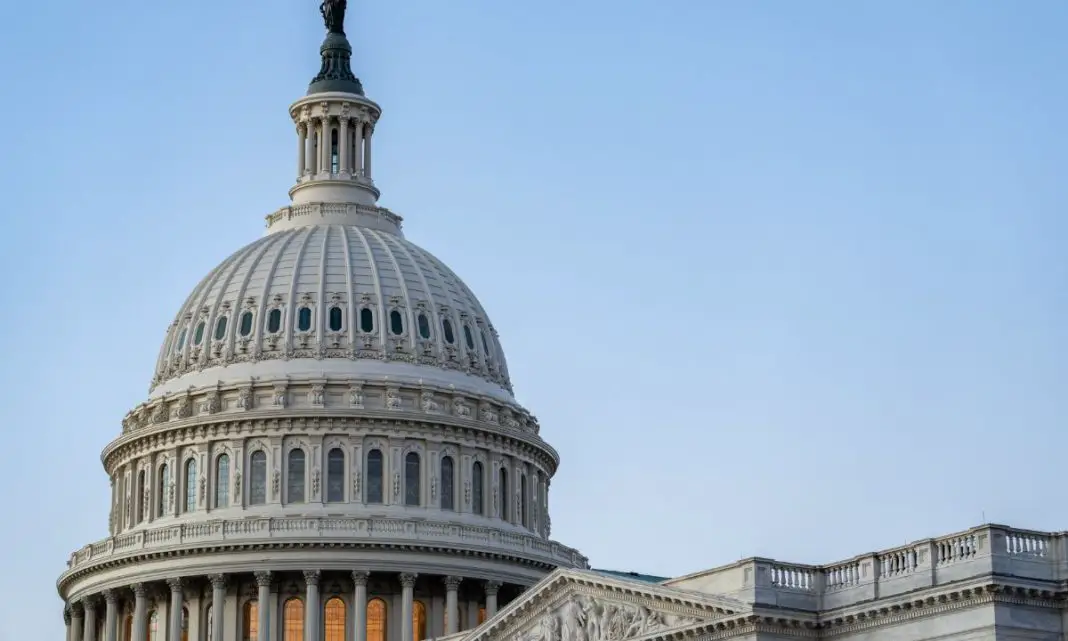A Ticking Clock on America’s Bloated Debt
The United States is staring down a potential default on its staggering $36 trillion debt, with a new study from the Bipartisan Policy Center warning that Congress must act by July—or October at the latest—to avoid a financial catastrophe.
The nonpartisan group’s analysis lays bare the urgency: without a vote to raise the debt ceiling, the federal government’s reckless spending habits could grind to a halt, leaving bills unpaid and promises broken. It’s a stark reminder of how decades of unchecked government excess have pushed the nation to this brink.
The four-month window hinges on a mix of factors—tax revenues rolling in from April, the economic fallout from the Atlantic hurricane season, tariff income, and the overall health of the U.S. economy.
Yet, the real wildcard could be the Department of Government Efficiency (DOGE), a bold initiative championed by Republicans to rein in Washington’s wasteful ways. If codified later this year, these cuts might delay the debt ceiling crunch, offering a glimmer of hope that someone’s finally serious about tightening the purse strings.
Wasteful Spending Meets a Call for Action
“Lawmakers cannot afford to delay action on the debt limit,” said Shai Akabas, vice president of economic policy at the Bipartisan Policy Center.
“Congress has a full plate in 2025, but addressing debt limit well ahead of the X Date should rise to the top of the priority list right now. History has shown that even approaching the X Date can lead to market volatility, higher borrowing costs, and reduced confidence in US fiscal stability.”
His words point to the chaos that looms when a government addicted to spending fails to face reality—a reality President Trump tried to tackle before January by pushing Republicans to suspend the debt ceiling in a stopgap funding deal. That sensible fix, sadly, didn’t make the cut.
Meanwhile, House Republicans are crafting a sweeping bill that tackles border security, energy independence, and a hefty $4.5 trillion tax cut—while nudging the debt limit up by $4 trillion to keep the lights on.
“The House is determined to send the president one big, beautiful bill that secures our border, keeps taxes low for families and job creators, grows our economy, restores American energy dominance, brings back peace through strength, and makes government more efficient and more accountable to the American people,” declared House Speaker Mike Johnson (R-La.) alongside GOP leaders in a Monday statement.
Congress Divided on Curbing the Spending Spree
“The American people gave us a mandate and we must act on it. We encourage our Senate colleagues to take up the House budget resolution when they return to Washington,” Johnson and his team added, signaling a push to deliver results over reckless handouts.
Across the aisle, Senate Majority Leader John Thune (R-SD) prefers splitting the effort into two bills—one for immigration and energy, another to extend the 2017 tax cuts, which could add $3.5 trillion to $3.9 trillion to the deficit over a decade. That’s a tough pill for fiscal hawks in the GOP, who’ve long fought to slash America’s borrowing addiction, not feed it.
Back in June 2023, former House Speaker Kevin McCarthy (R-Calif.) took a stand with the Fiscal Responsibility Act, suspending the debt limit until January 1—a rare moment of restraint. Democrats, predictably, lean toward suspending the ceiling altogether, but they’re unlikely to play ball if it’s tied to a Republican-led package.
Meanwhile, the Treasury Department’s been juggling funds—raiding federal employee pensions among other moves—to stretch its borrowing power, with new Treasury Secretary Scott Bessent warning congressional leaders on March 14 that the clock runs out June 27.
It’s a Band-Aid on a gaping wound, proof that without real cuts, the government’s spending spree could drag the nation under.
What are your thoughts on America’s always-increasing debt? Let us know in the comments below!


Congress should tie their salary (and their pensions!!!) to no more than one hundred thousand dollars a year with no loopholes and no deductions and let them pay for everything that the regular (the ones whos taxes support this country!!!) taxpayers have been paying all along; Yes?